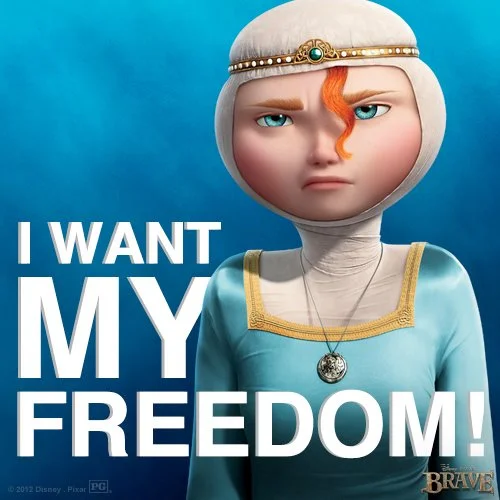“Living well is the best revenge.”—F. Scott Fitzgerald
THE MASK
Saturn’s transit through Scorpio is a great excuse to explore some of the shady, unseemly and unpleasant elements of human nature that might just be easier to avoid altogether. Steven Spielberg explores elements of racism and slavery in his new movie “Lincoln,” depicting the passing of the Thirteenth Amendment to the United States Constitution which took place on December 6, 1865, while Saturn was transiting through Scorpio. Huge defining pieces of the legacy of racism in the United States can be linked to Saturn transits in Scorpio. We could also venture into issues of betrayal, deep bitterness and resentment, envy, jealousy and obsession, or lusty desires and lonely desperations. So many choices!
For the purposes of this blog, I want to focus for a little bit on an extremely popular “dark” emotion: vengeance! Getting even! Ha! Let’s put compassion to the side for just a little while (it’s not going anywhere, it’ll still be here when we’re done) and look at what it’s like to get really, really, really, really seriously angry. What do you do with those kinds of emotions? See, while Saturn in Libra wants to get balanced, Saturn in Scorpio whole-heartedly wants to get even. That's one avenue it can take. Saturn in Scorpio replaces the Libran blindfold (turning a blind eye) with the mask of the Avenger. This desire to get even—or, as Adele aptly sings it, to “Set Fire To the Rain”—takes center stage when the unpredictable turns and twists of Fate weave themselves in and out of our lives, sometimes leaving us with nothing but the feeling that something has gone horribly wrong. Whether it’s the tragic death of a loved one (depicted brilliantly in Jodie Foster’s “The Brave One”), the onset of a health crisis, or some other life event that, in theory, should have—if there is any justice in this world!!—gone very differently, these seemingly “unfair” events of life can start quite a quiet boil in the psyche, leaving a restless soul simmering underneath an otherwise calm exterior.
THE THREE FATES, THE FURIES & THE KINDLY ONES
How to approach this touchy subject and give vengeance its due? And what does this have to do with Nerds?
First off, vengeance is nothing new to the human psyche. As long as people have told stories, vengeance presents itself as one of the core archetypal themes of life. Centuries ago, during the times of “Beowulf,” it was actually considered shameful to not seek revenge when you have been unjustly wronged in some way.
Second, because vengeance is archetypal, it helps to look at its mythic background. Myths connect human beings to the eternal, archetypal realm, and the mythic background of vengeance features a cast of dramatic, darkly-clad figures (mostly female) like Nemesis, the Goddess of Vengeance and Divine Wrath. Nemesis allots happiness to humans, and part of her job is actually to make sure people don’t get too happy. ! Eris fits the bill quite nicely too, as she brought discord and strife to a wedding on Mount Olympus when the party planners neglected to invite her. How dare they! You don’t want to mess with Eris.
Most intriguing to me, though, are an offshoot of the Three Fates themselves, the Furies—three hideous, ugly, winged Gorgons who avenge injustice on a cosmic scale. They hound, endlessly harp on and wreak havoc in the lives of those who transgress natural law, particularly those who commit murder. If this starts to seem less and less like it has anything to do with your life, bear with me. (Plus, you want to see how Nerds fit into this.)
Back in ancient Greece it was not cool to speak of the Furies directly. You just didn’t do it. You did not want to attract their attention. I take enormous risk by even mentioning them by name here! As a safeguard, the Furies became known as the Eumenides, or the Kindly Ones, which is where this gets really interesting.
The word “kindly” means far more than just being nice. The original meaning of “kind” is “natural” or “nature” – as in, your inherent nature, and the kind of person you are. What kind of a person are you? As Tina Turner sings, “There are all kinds of people in this world.” What comes naturally to you? To be “one of a kind” is to be who you naturally are, to be in touch with your unique inherent nature. Thus, to be “kind” is to be true to who you are, to embrace your unique bent on life, your natural inclinations and leanings. To be un-kind means to not be yourself, to betray your own nature. To be un-kind, then, calls in the Kindly Ones to avenge your wrong-doing!
On a personal level, the Kindly Ones keep you true to form, true to your inherent nature and the kind of person you were born to be. Somehow they know the pattern inherent to your life, and keep you on course. Stray too far from who you are, get too bent out of shape, and strange things can happen in life. This is, in part, where medical intuition comes in, because the natural intelligence of our bodies is designed in large part to keep us true to our nature. Health crises are not random. They have a divine precision to them. Medical intuition is much, much more complicated than that, and I can’t do it any justice in just a couple of sentences, but you hopefully get the idea I’m going after here.
Now, it’s interesting to consider how powerful a force vengeance is in today’s world, at a time when health crises continue to mount. Vengeance is all over popular culture and has been for quite some time. “The Avengers” has quickly become the third most popular movie in the history of all movies. We also have “The Girl With the Dragon Tattoo”—two versions, no less!—and its sequels (talk about revenge!). We have “The Dark Knight Rises,” “Wrath of the Titans,” “Justified,” “Spartacus: Vengeance,” the new television series “Arrow,” and, last but certainly not least, “Revenge.” Oh, and there are quite a few Angry Birds out there too, not to mention the phenomenon of the Vampire, which is tightly an inextricably bound up with the legacy of vengeance and revenge. Considering that “revenge” simply means “to take back,” though, I want to take us back now to 1984, when Saturn was last in Scorpio, to a little movie called “Revenge of the Nerds.”
LOVING WHAT YOU LOVE
Back in 1984 a Nerd was a particular kind of person who was intelligent, typically unattractive, unfashionable, socially awkward, sexually undesirable, and in general a bit odd (to understate it). Who on earth would want to be a Nerd, right? And they really liked their computers. A lot. Perhaps a little too much, you know? Like, freakishly too much. As is usually the case with anyone too odd or too different, Nerds were harassed, bullied, beat up and tormented, and were the unwilling recipients of countless swirlies. The movie “Revenge of the Nerds” arrived with its advertisement, “They’ve been laughed at, picked on and put down. But now it’s time for the odd to get even!” And in the movie, they did. The Nerds got their revenge.
OK, so what? Big deal. Well, just remember that this is revenge we’re talking about. Vengeance. The Nerds got pushed to their limits and got seriously pissed off! They didn’t avoid it and go quiet. They did something about it. This is where, as you’ll see, vengeance is not necessarily a bad thing at all. If you’re the kind of person who stays as far away from words like “vengeance” and “wrath” and feelings of anger like you stay away from the plague (or golf! Golf is so boring!), this is where you might want to tune in. See, we can take the revenge of the Nerds out of the movies and see that, in life too, Nerds got their revenge. Nerds, in fact, irrevocably changed the entire course of human history forever. If that sounds overly-dramatic, I have one word for you: Internet. Or three words: Word Wide Web. Consider, really consider, the full impact so far that the Internet has had on life world-wide. It’s extraordinary, and it's all thanks to the Nerds.
Despite the bullying and endless tormenting and harassment, Nerds did not compromise who they were one bit (pun intended). They did not abandon their inherent nature. Rather, the “dark night of the nerds” followed the archetypal pattern of the dark night of the soul, and—despite having every legitimate reason to get even in some shady back-handed manner—by embracing who they were and what they loved, and becoming it even more, Nerds got their revenge and changed the world. Nerds got their revenge and brought more computers into the world, not less. Nerds got their revenge and we have Macs, PCs, laptops, flash drives, iPhones, Androids, other Smart Phones, iPods, iPads, Nooks, Kindles, and WiFi—to name a few—as a result. Nerds like Steve Jobs and Bill Gates (both born with Saturn in Scorpio) got their revenge and relentlessly carried on following their unique visions and passions. A generation later, Mark Zuckerburg (also Saturn in Scorpio) took the mantle one step further with Facebook and his “maniacal focus” on connecting every single human being on the entire planet. Nerds, you see—the most isolated and excluded and picked-on people—turned out to be the ones able to connect more of humanity together than ever before! As Carl Jung noted, “Behind the wound lies the genius.” Indeed! When your computer crashes or your Internet goes down, who are you going to call? Not the Ghostbusters, as it turns out; you call the Nerds!
As if that weren’t enough, Nerds became sexy too! And did they ever! Not entirely, not 100%, not every Nerd across-the-board, but the pantheon of sex symbols now includes some Nerds. For sexy Nerds, look to the new Q in the James Bond movie “Skyfall,” or the new Sherlock Holmes portrayed by Benedict Cumberbatch. Check out former weakling Steve Rogers in “Captain America,” Peter Parker (Andrew Garfield) in “The Amazing Spider-Man” (he’s amazing!), Tony Stark in “Iron Man,” or Auggie in the television show “Covert Affairs”—to name a few. Even Doctor Who is sexy now! See, this is the power of vengeance done right.
You may wrestle with a wrathful heart, struggling to shut it up, letting it go, or keeping it at bay, but to simply avoid these kinds of intense emotions or pretend-make them go away (spoiler: they don't) takes its toll on a life. Remember the Furies, and remember that heart disease is the number one killer in the United States. Perhaps there's a connection. The wrathful heart is still a heart, after all—a heart that powerfully and passionately beats and pulses with the fiery energies of both destruction and creation. It's not only a destructive path. The vengeful heart's ability to create is as profound as its ability to damage and destroy. The choice is yours.
In her 1984 hit song “Twist of Fate” Olivia Newton-John sings, “Life doesn’t mean a thing without the love you bring.” Which is to say, when the slings and arrows of outrageous fortune give you a bum deal—which is part of the “bazinga!” nature of life itself—the best revenge might just be to bring forth what you love—what means the most to you—with a vengeance. It not only brings meaning to your life, but it adds to the meaning of the world as well. Something in the world changes. As evidenced by the Nerds, the art of transformation isn’t really about radically altering yourself and your life. Rather, it’s about becoming more and more of who you are, revealing your inherent nature as a true one-of-a-kind, sometimes against all odds. Bringing what you love into the world somehow transforms what needs transforming, naturally, because your heart is in it. When it comes to actually doing this day after day, week after week, year after year, it may seem about as easy as remembering how to play Rock-Paper-Scissors-Lizard-Spock, but it might just be the kindest thing you ever do.



















